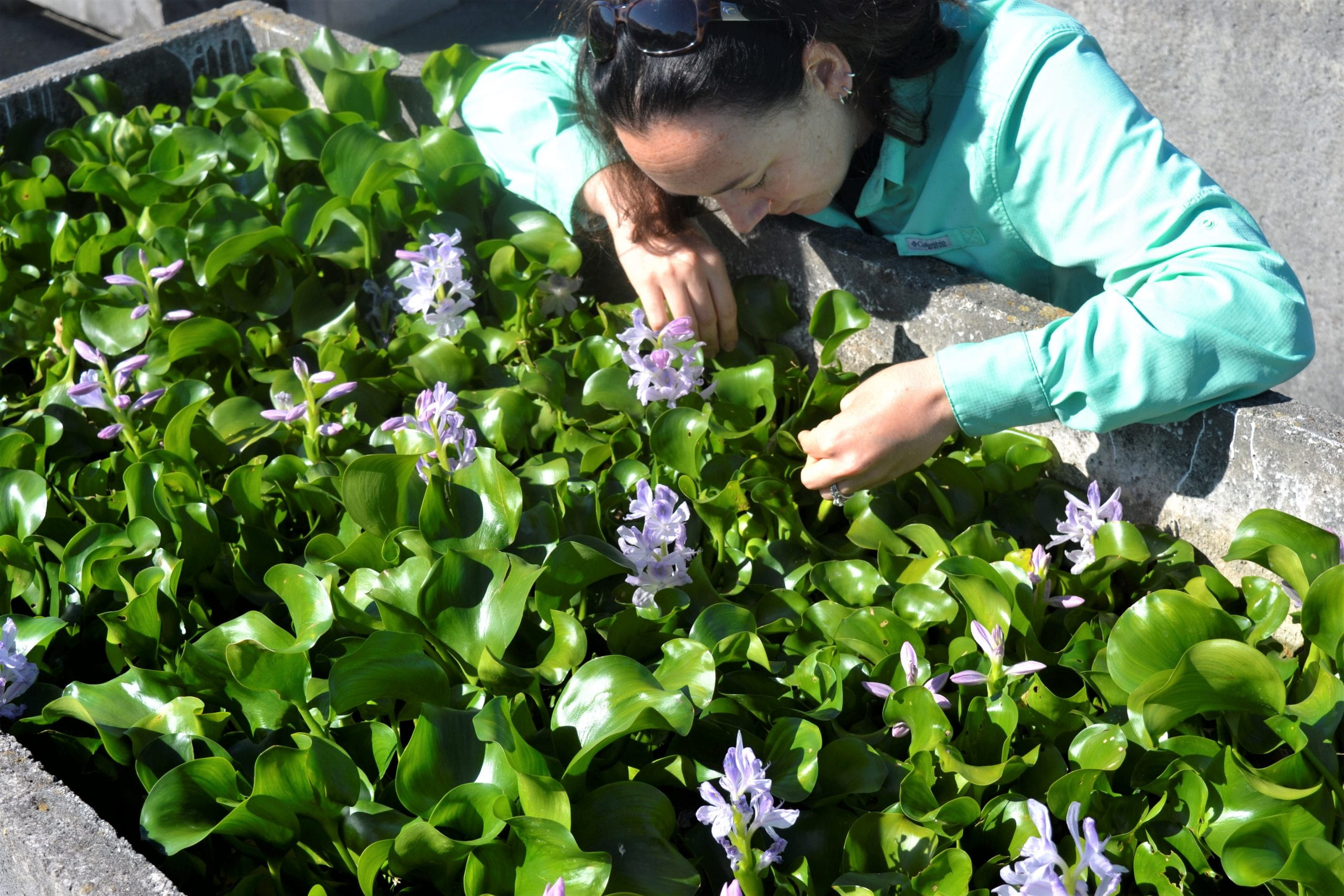Chris Stauffer
Photography Editor
I am in the Bachelors Program at Broward College studying Environmental Science. A requirement for the program is that students are required to complete an internship.
When I shared with the program manager, Dr. David Serrano, that my desire was to work with plants following graduation, he facilitated my internship at the United States Department of Agriculture (USDA) in the invasive plant research laboratory, right across the street from Broward College Central Campus.
I have had an amazing experience since I began my internship! I am working with the team focusing on biological control on terrestrial and aquatic plants.
I am in the Water Hyacinth group where we study methods to help combat the invasive Water Hyacinth.
Water Hyacinth was introduced in the 1800’s and it has the ability to cover bodies for water with ease. Today, there are many companies that kill water hyacinth by spraying.
My team is identifying methods that will work in conjunction with the spraying that is being done.
We work with a weevil (beetle) that helps with the water hyacinth problem. The species of the weevil that we are working with is Megamelus scutellaris. They have two forms, one that has wings and flies (Macropterus) and another form that doesn’t fly (Bracypterus).
This weevil that we use is originally from Argentina and Paraguay. They get their food from sucking plant juices and the only thing that they like to eat is our communal problem, the Water Hyacinth.
The weevils were initially released in Florida in 2010 and they have also been released in Louisiana and California. There have been nearly two million weevils released so far.
I work in the lab with two biological science technicians, Brittany Knowles and Ryann Valmonte; under the direction of Dr. Ashley Goode, research entomologist.
Another place that I do my internship is the Keep It Native Demonstration (K.I.N.D.) garden, an outreach program of the USDA.
The garden was created in 2010 on Earth Day for the purpose of educating people on native and invasive plants. The K.I.N.D. garden houses seven different Florida plant habitats, which attract many diverse animals, many of which are native to Florida.
The K.I.N.D. Garden was one of the Emerald Award winners for 2017, under the category of Naturescape. The Emerald award program is based in Broward County and recognizes the commitment of protecting and preserving the environment.
The Naturescape award is a recognition for those who have created and maintained landscapes that are drought tolerant, provide food, water, and shelter for wildlife, and utilize landscape best management practices.
When working in the K.I.N.D. garden, I am supervised by Eileen Pokorney, Biological Science Technician, who has worked in the K.I.N.D garden since its creation.
The tasks I do at the USDA invasive plant research laboratory and in the K.I.N.D. may be very basic because I am completing an internship and still learning.
The team who work in the lab are knowledgeable, kind, helpful, and patient. They are dedicated to teaching as much as they are passionate about their jobs.
Pokorney, who oversees the K.I.N.D. garden is comparable to a loving grandmother who appreciates teaching and watching young people learn. The people I have met, as well as the tasks I am learning, will not only make me better at my career but will make me a better person.
